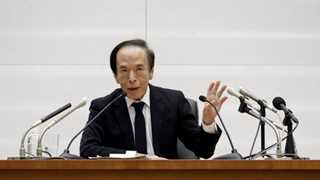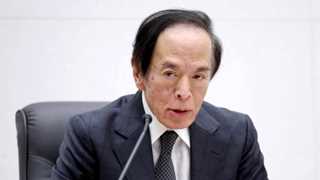Bank of Japan estimated that the country's economic outlook remained subject to "extremely high uncertainties" as a result of developments in foreign economic activity and pricing, as well as the war in Ukraine, the policy board revealed in the document detailing the central bank's decision to leave interest rate unchanged during the March meeting.
The central bank's board defended its monetary policy decision, arguing that it will continue with quantitative and qualitative monetary easing (QQE) aimed at achieving the price stability target of 2% "in a sustainable and stable manner accompanied by wage increases" for "as long as it is necessary," as several members expressed concern that the inflation rate could grow faster-than-expected.
The annual inflation in Japan is expected to decelerate toward the middle of fiscal 2023. Following the March meeting, the policymakers once again decided to maintain its loose monetary policy "for the time being."




